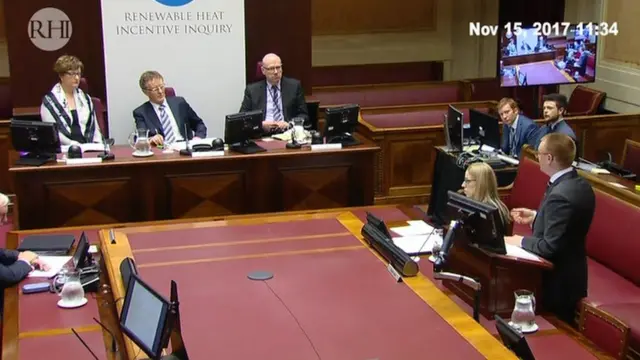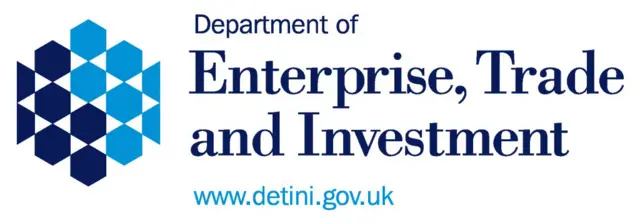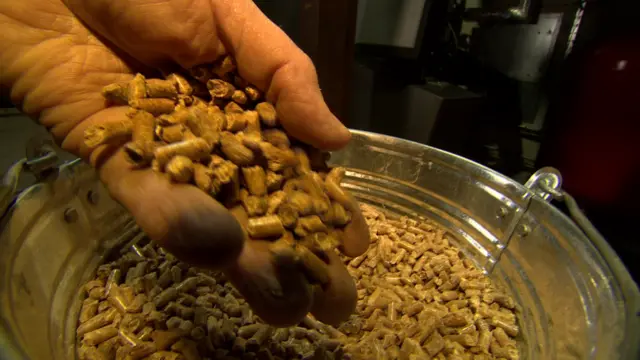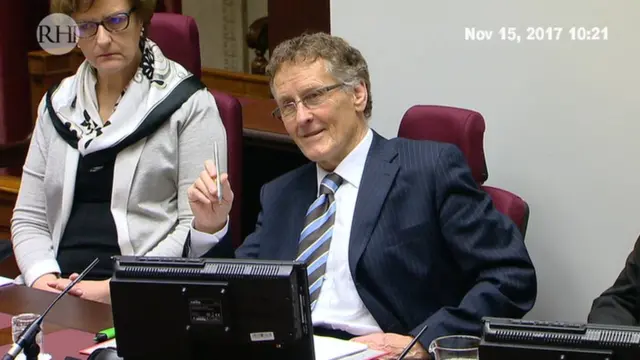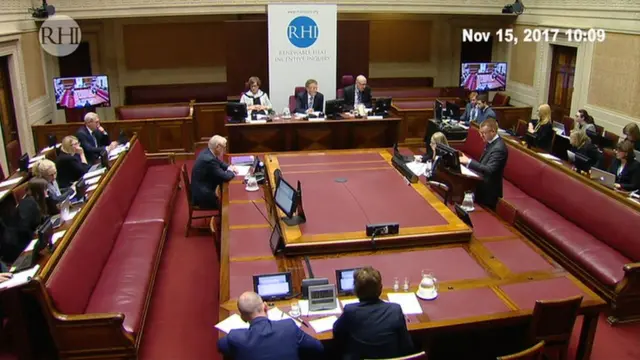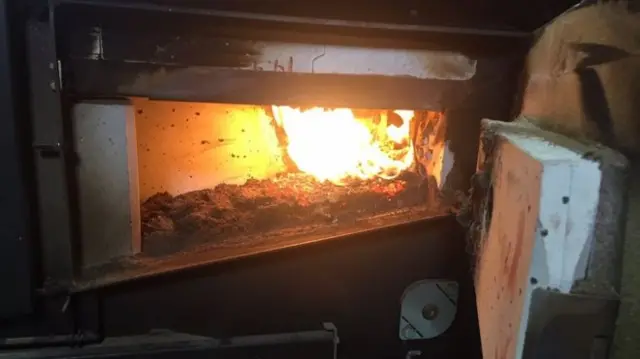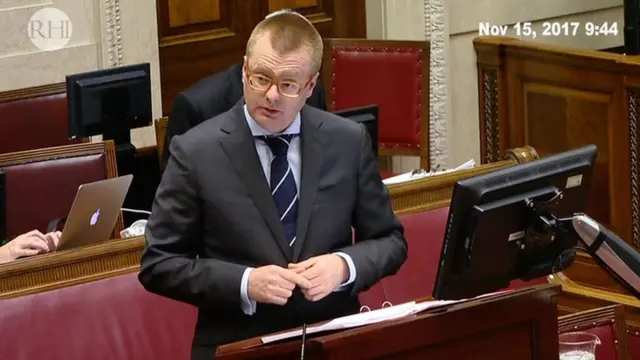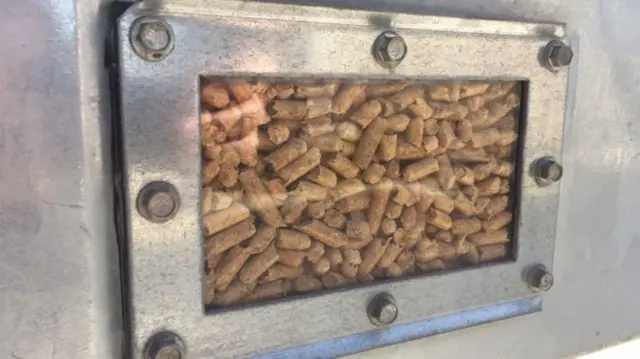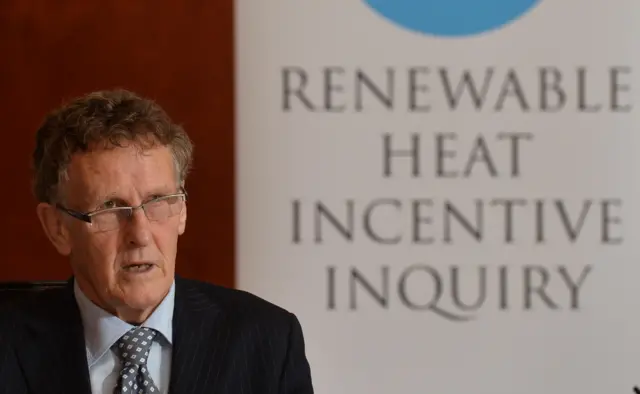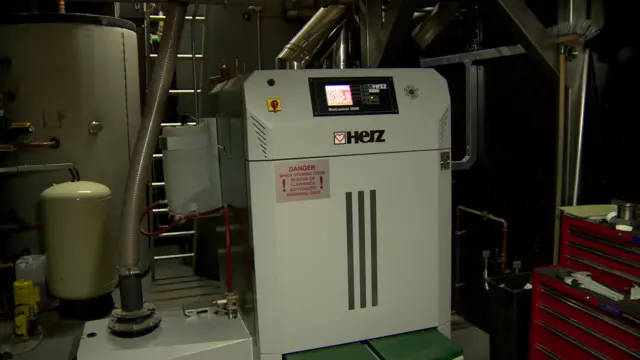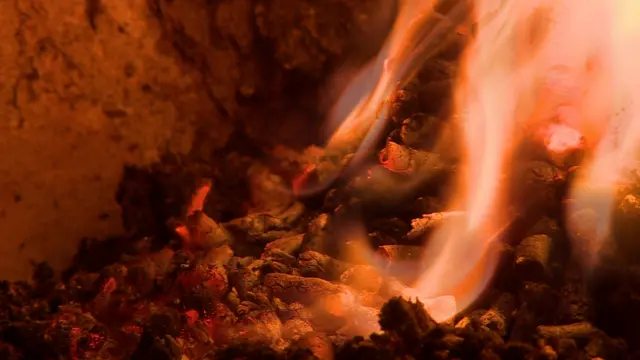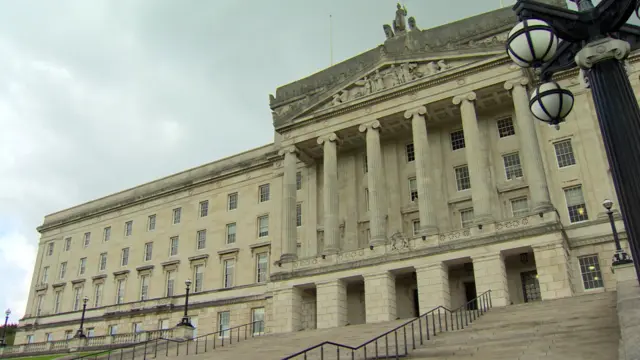'Who decided on scheme's policy position?'published at 12:11 GMT 15 November 2017
Ofgem's feasibility study for a Northern Ireland RHI scheme was issued on 16 December 2011, and it pointed out that there was no mechanism in the initiative to control its cost if the uptake was higher than anticipated.
But Mr Aiken points out that at that stage there was no provision for budget control in the Great Britain scheme that officials in Northern Ireland had ignored.
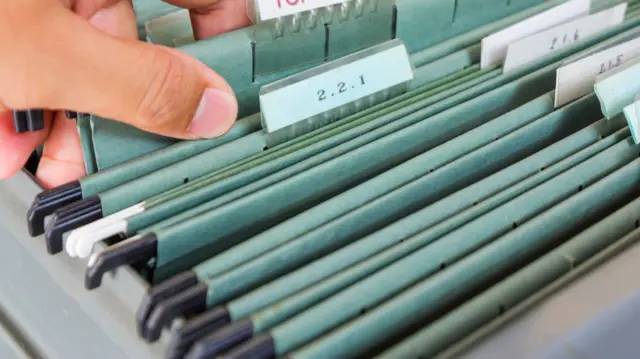 Image source, Getty Images
Image source, Getty ImagesIn DETI's application for EU state aid rules approval for the RHI scheme, it said it was not considering putting a subsidy digression mechanism into the initiative at that stage.
Mr Aiken says that he is unaware of any communication within DETI that led to the adoption of that position, and he says the inquiry will have to establish who decided on it.
